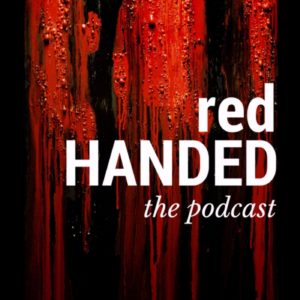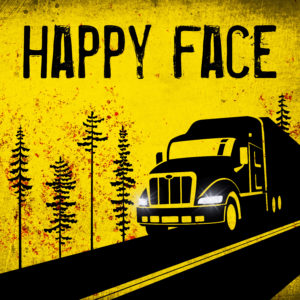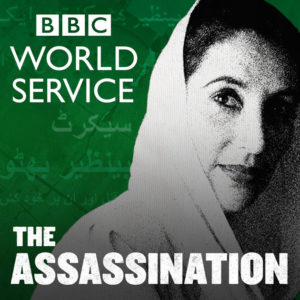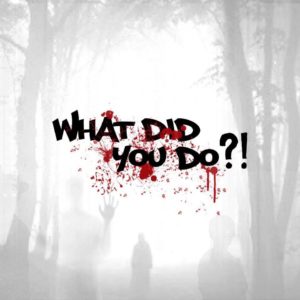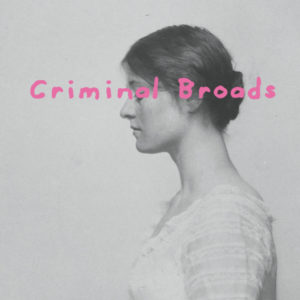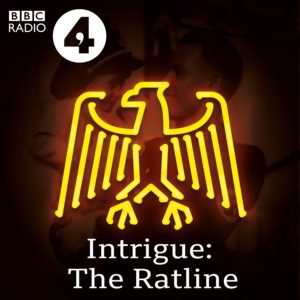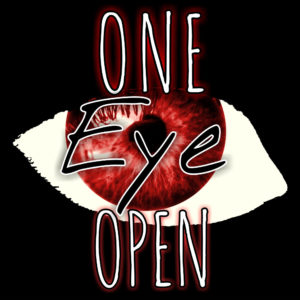I’ve written about a lot of crime podcasts in the past year, and in my perfect world, you would listen to all of them. But 2018 is no one’s perfect world, so I made this much-shorter list of some of the podcasts that first came to mind when I tried to think of “good + 2018 = ???”
As crime podcasts continue to be popular than ever, there are thankfully plenty of people who want to push the boundaries of the genre, and to keep making it fresh, new, and socially relevant. We’ve seen an increased focus on stories that haven’t been told before, on hearing from communities that we haven’t heard from enough, and in using podcasting to try and promote some of the fairness and rationality that has often seemed lacking this year.
And as the boundaries of crime podcasting continue to grow, it’s more likely than ever that there’s a crime podcast out there for everyone. Here’s a good place to start, with ten of the best new and returning crime podcasts to hit our podcast feeds this year.
Lost and found: Missing and Murdered: Finding Cleo
The second season of CBC’s Missing and Murdered focuses on the search for Cleopatra Semaganis Nicotine, a young Cree girl who—along with her five siblings—was removed by social services from her Saskatchewan home in 1972. After being scattered into different foster homes across North America, the Semaganis siblings were able to reconnect as adults—except for Cleo, who was rumored to have been murdered when she was still just a child. Christine, Cleo’s youngest sibling, enlists Connie Walker and Marnie Luke of the CBC to find out the truth; in an investigation that first narrows in on one story before panning out further and further, the podcast examines not only the fate of Cleo and her family, but the systemic racism that dumped indigenous children into abusive residential schools, or forcibly adopted them out of their homes and into white families. It doesn’t exactly make for easy listening, but Walker conducts the search with unfailing sensitivity and compassion. There’s also a lot of great, old-fashioned sleuthing—complete with chance encounters, dramatic revelations, dusty files, and lots of microfilm—in which one clue builds on the next, until it’s finally revealed exactly what did happen to Cleo. For anyone who enjoys serialized investigations with a personal focus, Finding Cleo is second to none.
Common ground: RedHanded
In the Venn Diagram of people who both do and don’t like conversational crime podcasts—the kind typically co-hosted by friends, with at least some amount of off-the-cuff remarks—RedHanded sits in the almost non-existent gray overlap of the two circles. In every episode, co-hosts Hannah and Suruthi have spontaneous conversations about crime, which are peppered with personal observations and humor (but never at the expense of the victims), but they also come to each recording armed with careful research, theories, and questions, and they don’t indulge in the types of endless digressions that leave you wondering what kind of podcast you’re even listening to, and whether your time would be better spent by reading a couple of articles and moving on with your life. RedHanded covers a mix of cases that you will and won’t have heard of before—but even if it’s a crime you know, Suruthi and Hannah’s frank perspectives, bemused observations, and sharp social critique will make it new. Whether the podcast leaves you thinking about racial politics, victim-blaming, the numbering of American houses, or the dubious logic of football scholarships, RedHanded has something for everyone.
Magic and mystery: Victoriocity
Victoriocity is one of those podcasts that I love so much, I can’t talk about it without speaking really quickly and using lots of hand gestures. It’s a steampunk detective story set in the 19th century of an alternate-history London, where Queen Victoria and Prince Albert are part-machine (and part each other), and the whole city is centered around a menacing electrical tower. A sardonic young detective, Archibald Fleet, finds himself wrapped up in a murder investigation alongside Clara Entwhistle, a journalist on her first assignment—and as you might expect, it doesn’t take long for things to get pretty peculiar. But Victoriocity is not just a unique, clever, and frankly delightful mystery—it’s also easily one of the funniest podcasts I’ve ever heard, as any startled subway rider who sat next to me while I was listening can tell you. The narration alone is a work of art, and the acting and production are outstanding. For anyone who thinks that the only crime they like is true crime, I implore you to give Victoriocity a try. If you don’t, you’re missing out on one of the most special podcasts—in any genre—that has come out in recent memory.
Family ghosts: Happy Face
Happy Face is one crime podcast that’s sure to be talked about for years to come. While good true crime podcasts pay attention to victims’ families as well as the victims (we’re not going to even talk about true crime podcasts who don’t spend time on the victims), it’s still a rare crime podcast who stops to think about the families of the perpetrators—who can also be profoundly affected by a crime, with an added element of guilt by association. In case you don’t already know, Happy Face tells the story of Keith Hunter Jesperson, the Smiley Face serial killer, from the perspective of Jesperson’s daughter, Melissa. Although looking back, the clues seem obvious, Melissa grew up having no idea that her father, her hero—the one whose shoulders she sat on as a little girl while they watched Unsolved Mysteries, which she now believes was his way of learning how not to get caught—had been killing one woman after another during his long, solo rides as a trucker. The families of the victims aren’t forgotten, either, as we hear from the grieving son of one of the murdered women—who, like Melissa, spent years struggling to put his life back together, in the wake of so many shattering, far-reaching crimes.
Murder on the world stage: The Assassination
The BBC World Service has been producing excellent podcasts for years, but 2018 was especially notable for their award-winning series, The Assassination. This 10-part podcast takes the listener through a decade-long investigation into the murder of Benazir Bhutto, the charismatic, courageous, and deeply complicated politician who became the first female prime minister of a Muslim-majority nation. Journalist Owen Bennett-Jones, who frequently spoke with Bhutto over the course of her career, has been preoccupied with her death ever since it occurred. With deft use of firsthand footage, his own recollections, and interviews with people around Bhutto—her family, friends, politicians, and even people suspected of killing her—Bennett-Jones starts at the beginning, tracing Bhutto’s remarkable political career in Pakistan, the events that made her both a controversial and beloved leader, and the possible reasons why her life was violently cut short. As Gold Medal winner of the British Podcast Awards, and winner of the Radio & Podcast Award from London’s Foreign Press Association, The Assassination is a gripping, tragic story, expertly told.
The danger of secrets: What Did You Do?!
If you’re starting to feel like you have déjà vu, it’s true: there are some podcasts that I write about a lot. But now more than ever, I really can’t emphasize enough how important it is to have a podcast like What Did You Do?!, and hopefully more podcasts like it, where we hear from social workers, people of color, and others who have been severely underrepresented in the crime podcast community. What Did You Do?! is noteworthy not only for the personalities, life experiences, and professional expertise of the co-hosts, but for the extreme empathy shown for everyone involved in a crime. It’s much easier to revel in the details of how sadistic a person can be than it is to try and truly understand how that person became what they were—and to admit that the gap between crime podcast listener and crime podcast topic isn’t necessarily that big, depending on the upbringing, privileges, mental health, and dumb luck that we’ve all been allotted. But despite the seriousness of the topic and approach, Dee and Charneil are truly fun to listen to—wry and self-deprecating, with a lively back-and-forth—which helps to guide you through some difficult but incredibly important discussions.
Nothing but the truth: In the Dark: Season 2
For the second season of In the Dark, American Public Media reporter Madeleine Baran travels to Winona, Mississippi, where in 1996, four employees of a furniture store were murdered in broad daylight. Curtis Flowers, the man who’s been sitting in jail for 20 years after being tried for the same crime six times, insists that he’s innocent—to the indignation of many in Winona, in a debate that largely falls upon racial lines. Baran seeks to bring fresh eyes to the case, devoting separate episodes to each shaky pillar of the prosecution’s argument, so that a series of honest questions soon amounts to a methodical chipping away at the prosecutor’s entire case. To the podcast’s great credit, In the Dark doesn’t lose sight of either the big or small picture; Baran interviews witnesses, family members of the victims, and politicians who prop up a justice system that some would argue is riddled with errors, falsehoods, and alternative facts—the kind that are all too relevant, and dangerous, in 2018.
Look it up if you don’t believe me: Criminal Broads
In the past year, there’s been an increasing number of podcasts devoted to female criminals, but my favorite by far has been Criminal Broads. Host Tori Telfer, who wrote a book on female serial killers (Lady Killers: Deadly Women Throughout History), is great at not only telling stories, but in selecting the most engrossing and surprising stories to tell. “Surely,” you might think, “if there’d been a female pirate who commanded tens of thousands of men in 19th-century China, I’d already know about her.” Not necessarily! “Okay but if an adorable 14-year-old girl with a ponytail and blue jeans had been implicated in a mass murder spree in the 1950s, surely she’d be a household name.” Again, maybe not! The point is, no matter how much true crime history you know, there’s a treasure trove of riveting stories about female criminals out there, and Criminal Broads offers accurate and thoughtful discussions that are well worth a listen. Telfer often interviews fellow true crime experts, and as more than one has remarked, there’s something deliberate, calculated, and deeply personal about many of the crimes committed by women—and about the tangled legacy they do, or don’t, leave behind.
The war criminal in my family: BBC Radio 4—Intrigue: The Ratline
The BBC was behind another remarkable podcast this year, the second installment in their Intrigue podcast series. The Ratline tells the true story of Otto von Wächter, a high-ranking Nazi official who was indicted for mass murder, only to escape law enforcement and mysteriously die several years later. Philippe Sands, human rights lawyer and author of several works on war crimes and genocide, examines the life and death of Wächter, with the help of Wächter’s son, Horst—a sociable, elderly man who lives alone in a castle, and who steadfastly insists that his dad was actually not such a bad guy. Sands is hardly an ideal audience for such a claim, since—just for one thing—much of his extended family were murdered during the Holocaust. Yet Sands and Wächter maintain a civil relationship, as Wächter unearths never-before-seen letters between his parents (read by Stephen Fry and Laura Linney), filling in historical and psychological blanks in this particular saga. As Sands is quick to point out to his listeners, there is never a chance that Horst will win anyone over: The Ratline is not the story of a misunderstood Nazi. But it is a look at history placed under a new microscope, and a powerful study of someone who is steeped in deep denial.
Between you and me: One Eye Open
Looking back, One Eye Open is honestly one of the best things to come out of 2018. Hosted by Stephy, the daughter of an English homicide detective, the podcast looks at crime from a personal perspective: Every episode opens with Stephy telling stories about her father or other family members, which ultimately connect with the crime of the episode. Stephy focuses on more obscure cases, which are worth hearing about in their own right. But on top of her unique content, she’s simply a wonderful storyteller—easy to listen to, with a great sense of timing and tact, and a nimble use of different types of sources—who recounts her stories as if she’s talking to each listener separately, from one friend to another. Especially if you’re someone who listens to a lot of true crime podcasts, Stephy’s empathetic and sensitive approach is a powerful reminder of the real, human loss behind crime. At the same time, there’s a lot of humor and even joy in One Eye Open—whether in funny family stories, self-deprecating jokes, unintentional rhymes, or cold gin and tonics—which remind you that laughter in the face of tragedy can be a sign of resilience, not of disrespect, and that laughter and tears are never far apart.



